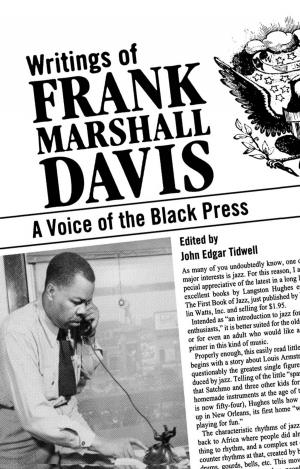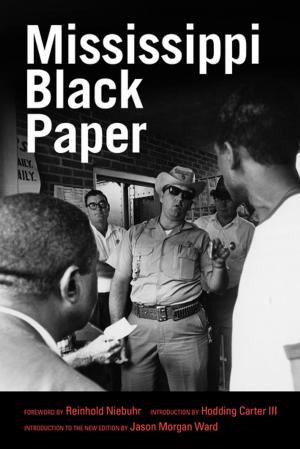The Struggle for America's Promise
Equal Opportunity at the Dawn of Corporate Capital
Business & Finance, Career Planning & Job Hunting, Labor, Nonfiction, Social & Cultural Studies, Political Science, Politics, History & Theory, History, Americas, United States, 19th Century| Author: | Claire Goldstene | ISBN: | 9781626741355 |
| Publisher: | University Press of Mississippi | Publication: | April 17, 2014 |
| Imprint: | University Press of Mississippi | Language: | English |
| Author: | Claire Goldstene |
| ISBN: | 9781626741355 |
| Publisher: | University Press of Mississippi |
| Publication: | April 17, 2014 |
| Imprint: | University Press of Mississippi |
| Language: | English |
In The Struggle for America's Promise, Claire Goldstene seeks to untangle one of the enduring ideals in American history, that of economic opportunity. She explores the varied discourses about its meaning during the upheavals and corporate consolidations of the Gilded Age. Some proponents of equal opportunity seek to promote upward financial mobility by permitting more people to participate in the economic sphere thereby rewarding merit over inherited wealth. Others use opportunity as a mechanism to maintain economic inequality. This tension, embedded with the idea of equal opportunity itself and continually reaffirmed by immigrant populations, animated social dissent among urban workers while simultaneously serving efforts by business elites to counter such dissent.
Goldstene uses a biographical approach to focus on key figures along a spectrum of political belief as they struggled to reconcile the inherent contradictions of equal opportunity. She considers the efforts of Booker T. Washington in a post-Civil War South to ground opportunity in landownership as an attempt to confront the intersection of race and class. She also explores the determination of the Knights of Labor to define opportunity in terms of controlling one's own labor. She looks at the attempts by Samuel Gompers through the American Federation of Labor as well as by business elites through the National Association of Manufacturers and the National Civic Federation to shift the focus of opportunity to leisure and consumption. The Struggle for America's Promise also includes such radical figures as Edward Bellamy and Emma Goldman, who were more willing to step beyond the boundaries of the discourse about opportunity and question economic competition itself.
In The Struggle for America's Promise, Claire Goldstene seeks to untangle one of the enduring ideals in American history, that of economic opportunity. She explores the varied discourses about its meaning during the upheavals and corporate consolidations of the Gilded Age. Some proponents of equal opportunity seek to promote upward financial mobility by permitting more people to participate in the economic sphere thereby rewarding merit over inherited wealth. Others use opportunity as a mechanism to maintain economic inequality. This tension, embedded with the idea of equal opportunity itself and continually reaffirmed by immigrant populations, animated social dissent among urban workers while simultaneously serving efforts by business elites to counter such dissent.
Goldstene uses a biographical approach to focus on key figures along a spectrum of political belief as they struggled to reconcile the inherent contradictions of equal opportunity. She considers the efforts of Booker T. Washington in a post-Civil War South to ground opportunity in landownership as an attempt to confront the intersection of race and class. She also explores the determination of the Knights of Labor to define opportunity in terms of controlling one's own labor. She looks at the attempts by Samuel Gompers through the American Federation of Labor as well as by business elites through the National Association of Manufacturers and the National Civic Federation to shift the focus of opportunity to leisure and consumption. The Struggle for America's Promise also includes such radical figures as Edward Bellamy and Emma Goldman, who were more willing to step beyond the boundaries of the discourse about opportunity and question economic competition itself.















